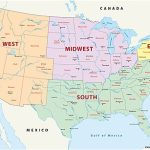
Leonard Read, founder and longtime guiding force of the Foundation for Economic Education, was completely committed to the belief that liberty and the private property that enabled it were both more moral and more productive than any alternative. He thought that if people could just “see” what he saw, liberty’s cause would be advanced. That is why he once described his many writing efforts as an ongoing process of “finding words for common sense,” to reach as many people as possible.
In his search to do so, he would use whatever might connect to some, including analogies, reverse analogies, quotations from both those who he thought “got” the ideas clearly and correctly as well as those who did the opposite, common phrases or word usages that fell in the same categories, and any example that might get the message across to those unreached by other efforts, etc. For those who already “get” liberty, it can sometimes seem like “hitting the same nail with too many hammers,” but for one focused on communicating the case for liberty to others, he provides a deep well of insights that can assist us.
One interesting example is Read’s use of beans to understand abuses that have been imposed on people’s ownership of their own labor services, in chapters 10 (“Getting to know beans”) and 11 (“Games we play with labor”) of his 1970 Talking to Myself. One aspect was to illustrate that labor services were not “different” than beans or any other commodity in any way that justifies overriding free labor markets. The other aspect was using the expression “you don’t know beans” to argue that those who promoted such “special” exceptions for labor didn’t know the first thing about liberty.
In “Getting to know beans,” Read began by addressing the first aspect:
If we knew beans … we would know that labor is a commodity … [But according to the 1914 Clayton Anti-Trust Act] “The labor of a human being is not a commodity or article of commerce.”
[The idea that] labor is not a commodity results in enormous economic mischief. If labor is not a commodity, then the argument seems to be its price (wage) ought not to be determined by competitive forces of supply and demand in an open market. In other words, those who argue that labor is not a commodity would in effect deny the laborer access to the market.
[It] generally implies that we who work for a living would fare better under compulsory unionism than in the voluntarism of the market. But … price and exchange control … keeps others from seeing what we have to offer and us from seeing what they have to offer in exchange.
Where does this confusion arise? From confusing people with the labor services they offer.
A laborer … is not a commodity…. But the labor or work of a human being … is a commodity. About this there should be no argument among those who respect the dignity of every man, and would have him free to buy and sell in the open market.
How are the principles of freedom that should be applied to labor services no different than those which should apply to beans or any other commodity?
We quite properly regard a bag of beans as a commodity. But what is a bag of beans, really? … a manifestation of numerous forms of labor applied to the good earth.
Labor, thus, is a commodity precisely as is the bag of beans.
All except socialist planners will agree that a bag of beans should go to market and find its price at whatever level free and willing exchange dictates. But very few in today’s world … agree that a laborer’s labor should find its price in this manner … because most people entertain the notion that labor is not a commodity.
[Some argue that the difference] is … that labor had needs whereas beans do not. True … laborers have needs. But our labor, as one of the scarce factors of production in the economic sense, no more has needs than do the beans. The only relevant question is this: Is our labor needed?
As I increase the attractiveness of my performance, my personal needs as a laborer can be increasingly gratified.
In other words, creating more value for others with our productivity, as with increasing any other good’s attractiveness—at which market mechanisms have no peer—is precisely the means to best meet our own needs, without violating the rights of others or detracting from their ability to meet their own needs. So, understanding the market for beans helps us understand that for labor.
These confusions as to the nature of labor lead to mischief when we institutionalize the confusions. Witness the countless political enactments that subsidize labor in employments free choice no longer demands…. Instead of a concentration on the improvement of labor and its market attractiveness, the movement is toward monopoly, a forming of cartels.
[But] There isn’t a single [person] who really believes that a laborer should be paid more for his labor than a free and unfettered market has to offer. Not if we test their beliefs by their actions rather than by their pronouncements!
Everyone … shops around for bargains. He’ll buy a can of beans from a store that offers it for 20 cents rather than from a store that offers the identical can for 30 cents … [But that is no more than] attempting to buy labor as cheaply as he possibly can, for that can of beans is but the manifestation of countless labor bits applied to the bounties of the good earth.
Were the actions of these people consistent with their pronouncements backed by coercion, they would buy the 30-cent can of beans; that is, they would insist on paying more for labor than the free market offers.
It is human nature and common sense for every bidder to buy services [directly or as embodied as goods] as cheaply as he can. But this does not force wages down. Nor is it a reason that laborers should mistrust the market. The over-all scarcity of labor as an economic resource, and the competitive bidding for that scarce and valuable resource, is the only way in the world for the laborer to obtain the full value for his services and fully enjoy the manifold blessings of freedom. But we must be done with the nonsense that labor isn’t a commodity.
Then, in “Games we play with labor,” Read connects the importance of understanding how labor should be treated like beans—in free markets—to whether someone knows beans about the fact that respecting owners’ private property rights in their labor is at least as important, if not more so, than for other goods.
If anything can be earmarked as one’s own … labor according to the laborer’s choice is it; nothing is more surely private property.
Labor … is the human asset from which all other assets flow … thus, labor according to the laborer’s choice is asset number one and should, perforce, rank number one in … protection. But does it? Indeed not! Labor … is the asset most fought over and contended for; it is the butt and pawn of present-day politics; plunderers … play games with our labor and wantonly waste it … someone else determines the disposition of the fruits of your labor.
Each of these divestment activities recognizes no right to private property. That your labor is yours is flagrantly denied. To dispossess is to disregard private ownership, the most important of all economic tenets.
Reflect on which is the better of these two ways: (1) you invest your labor as you see fit, or (2) I divest you of your labor and dispose of it for some good I think ought to be done.
Whoever you are, you advance your own interest and the interest of others better when investing your labor according to your lights.
That, in turn, is connected to the abuses of workers” self-ownership imposed by labor unions and their self-interested policies (ironic, in that they justify their existence as due to people’s freedom of association, even though their core efforts violate others” freedom of association in multiple ways).
Divestment … is played on an enormous scale … in the case of organized labor. As with all cartels, the labor union today is really a branch of the Federal government, for its many special privileges are government grants, that is, they are power grants, the privilege to act coercively.
The principled role of government is to secure each person’s right to life—labor being an extension of life. This to say … government’s function is to protect private property; its task is to secure labor against expropriation by any person or organization.
Plainly, the Federal government has … reversed its position … in the place of securing labor, it has put labor “up for grabs” … substituting an unprincipled for a principled role.
How does this play out?
Labor unions have a standard formula. First, the government grants special privileges and immunities. Then workers in various trades are organized … and each union hierarchy, after winning an election, speaks authoritatively for all members—even for the minority…. This is euphemistically referred to as “collective bargaining.” The unions bargain for—demand—above-market wages, more and more fringe benefits (which are really wages), and fewer hours of work. When the union side of the “bargain” is not acceded to … force or threat of force is employed to keep others from taking the jobs the strikers have “vacated.” This coercive tactic—the strike—rather than economic reasoning, is the language they use to persuade.
These millions of union members exert less, not more, labor—and for more money. If they get more [purchasing power], someone else must get less—be divested of a portion of his income or property. So it is that non-union workers are, in one way or another, divested of a portion of their earnings to make up the union members’ “gains.”
When some forcibly take a disproportionate share of the pie for themselves, there are only smaller pieces for the others.
This brings Read’s twin uses of beans together. When we fail to see that the same property rights and freedom principles apply to labor services as to the goods that we seek to purchase, we prove we either don’t know beans about those principles or we override them to advance our own interests at their expense. Such government sponsored abuse of what should be most clearly recognized as our own not only abandons citizens’ desires for mutual protection, it violates them. And correcting such abuses will benefit us all.
When we quit playing these games with labor, we will turn away from divestment and toward investment—to the interest of everyone.






